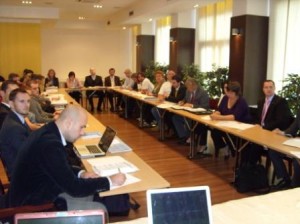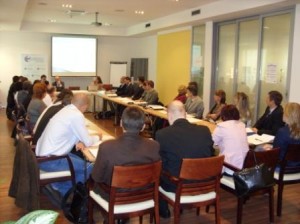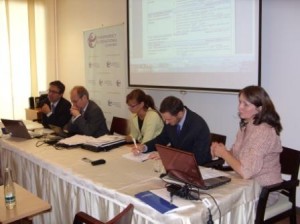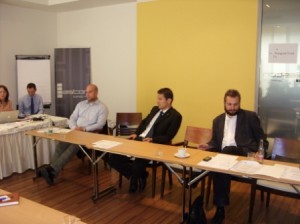This project[1] uses the methodology of Transparency International focused on assessment of the chosen institutions and their integrity in particular countries which is called National Integrity System Assessment (NIS methodology). This methodology is based on a TI’s holistic approach which believes that the ethical challenges in public sector and its readiness to fight corruption have to be examined complexly and coherently. The NIS methodology does not seek to offer an in-depth evaluation of each pillar, but rather puts an emphasis on covering all relevant pillars and at assessing their inter-linkages. Therefore, when examining the means to combat corruption in public sector, there is a need to focus on all relevant pillars as is shown in the Picture.
Figure: Pillars of National Integrity System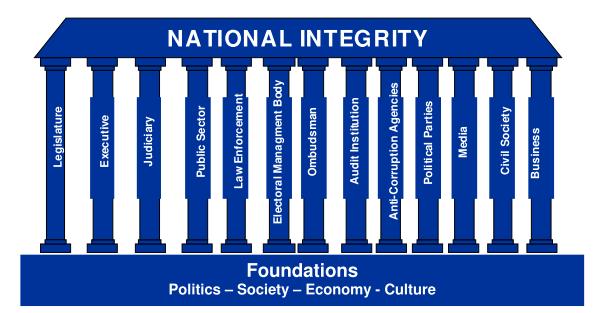
Source: Transparency International
The relevant pillars in Slovakia are:
- Parliament (legislature)
- Cabinet (executive)
- President
- Courts, The Constitutional Court, The Supreme Court (judiciary)
- Public sector
- Law enforcement (police)
- Prosecution (including General and Special Prosecution)
- Institution regulating political parties, their financing and campaigns (electoral management body)
- Political parties
- Ombudsman
- Civil society
- Audit and regulatory institutions
- Control and regulation of service providers
- Anti-corruption agency (Specialised Criminal Court)
- Media
- Business sector
- Interest groups securing public services*
- EU funds∗
∗ These pillars will be assessed beyond the NIS methodology framework
The aim of the NIS project is to compare resistance of these institutions and identify their tools to fight corruption.
The chosen researcher (SGI – Slovak Governance Instiute) will examine, using the NIS methodology, the integrity and readiness of chosen Slovak institutions to curb the corruption practises for the first time. Slovak public sector has never been examined by employing the NIS methodology. The time schedule of the project assumes the research duration since January 2011 until October of the same year.
The results of the research will serve as the basis for the definition of further activities within the project (2011-2012) and within the further work of TIS. Predominantly, they will be focused on enforcement of the inevitable changes leading to prevent corruption in Slovakia.
NIS Advisory group
The duty of the NIS advisory group is to provide feedback to the research during the two meetings. First meeting took place in March and the second one June. The constellation of the advisory group is: Juraj Draxler, Lukáš Fila, Andrej Findor, Milan Galanda, Ján Hrivnák, Jaroslav Ivor, Marek Kalavský, Robert Kičina, Emil Kočiš, Zuzana Mistríková, Pavel Nechala, Pavel Sibyla, Nora Slišková, Michal Vašečka, Daniela Zemanovičová.
Activities:
- 2.3.2011 I. Advisory Group meeting
- 6.7.2011 II. Advisory Group meeting
[1] Evidence-Based Action against Corruption: The European Integrity Systems Project.
Prevention of and Fight Against Crime Programme
With financial support from the International Visegrad Fund and Prevention of and Fight Against Crime Programme
European Commission – Directorate-General Justice, Freedom and Security
![]()




